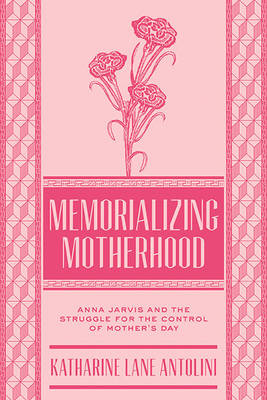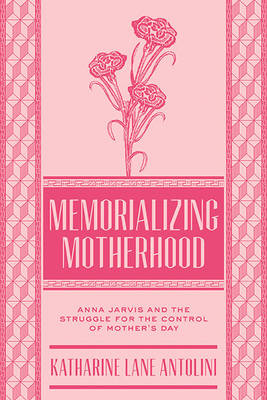
- Afhalen na 1 uur in een winkel met voorraad
- Gratis thuislevering in België vanaf € 30
- Ruim aanbod met 7 miljoen producten
- Afhalen na 1 uur in een winkel met voorraad
- Gratis thuislevering in België vanaf € 30
- Ruim aanbod met 7 miljoen producten
Zoeken
Memorializing Motherhood
Anna Jarvis and the Struggle for Control of Mother's Day Volume 15
€ 41,45
+ 82 punten
Omschrijving
Anna Jarvis organised the first official Mother's Day celebration in West Virginia in 1908 and then spent decades promoting the holiday and defending it from commercialization. This book explores the complicated history of her movement to establish and control Mother's Day, as well as the powerful conceptualization of this day as both a holiday and a cultural representation of motherhood.
Specificaties
Betrokkenen
- Uitgeverij:
Inhoud
- Aantal bladzijden:
- 288
- Taal:
- Engels
- Reeks:
- Reeksnummer:
- nr. 15
Eigenschappen
- Productcode (EAN):
- 9781938228933
- Verschijningsdatum:
- 20/12/2014
- Uitvoering:
- Hardcover
- Formaat:
- Genaaid
- Afmetingen:
- 177 mm x 231 mm
- Gewicht:
- 494 g

Alleen bij Standaard Boekhandel
+ 82 punten op je klantenkaart van Standaard Boekhandel
Beoordelingen
We publiceren alleen reviews die voldoen aan de voorwaarden voor reviews. Bekijk onze voorwaarden voor reviews.






